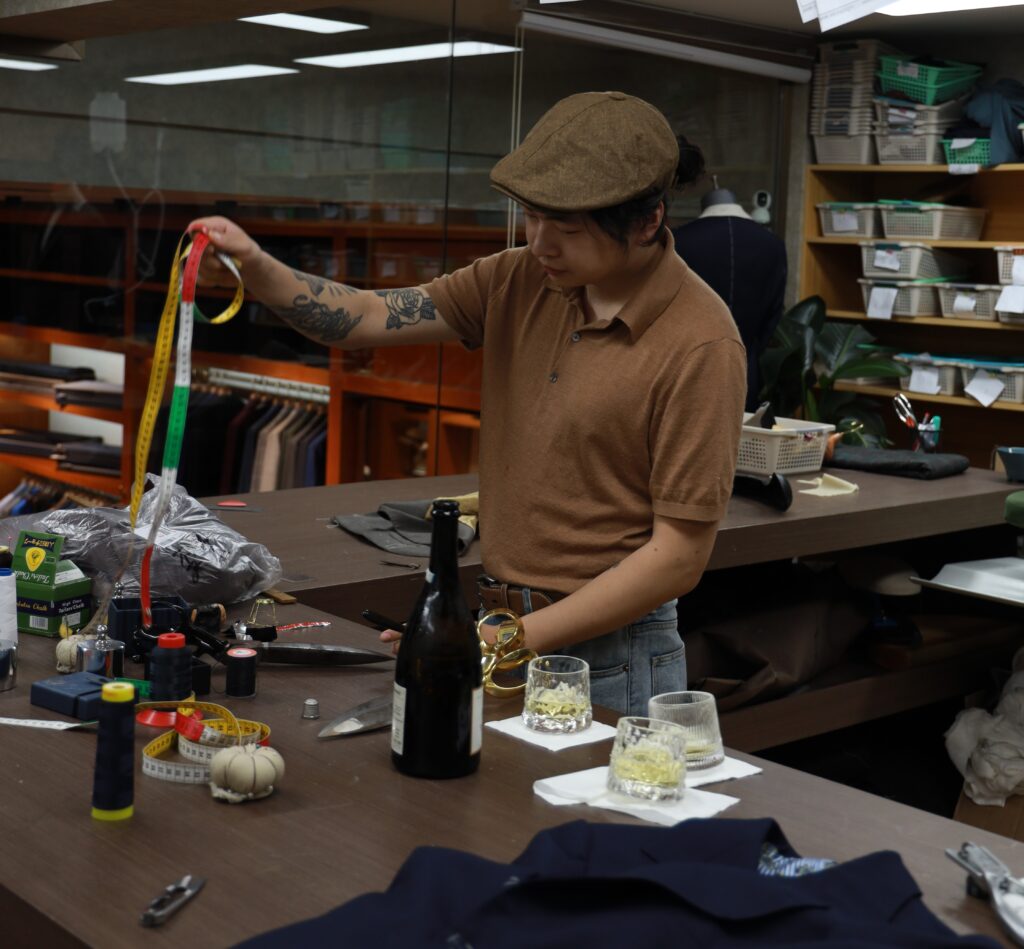Sartoria Dei Solari is probably the most exciting and desirable bespoke tailoring house emerged in 2022.
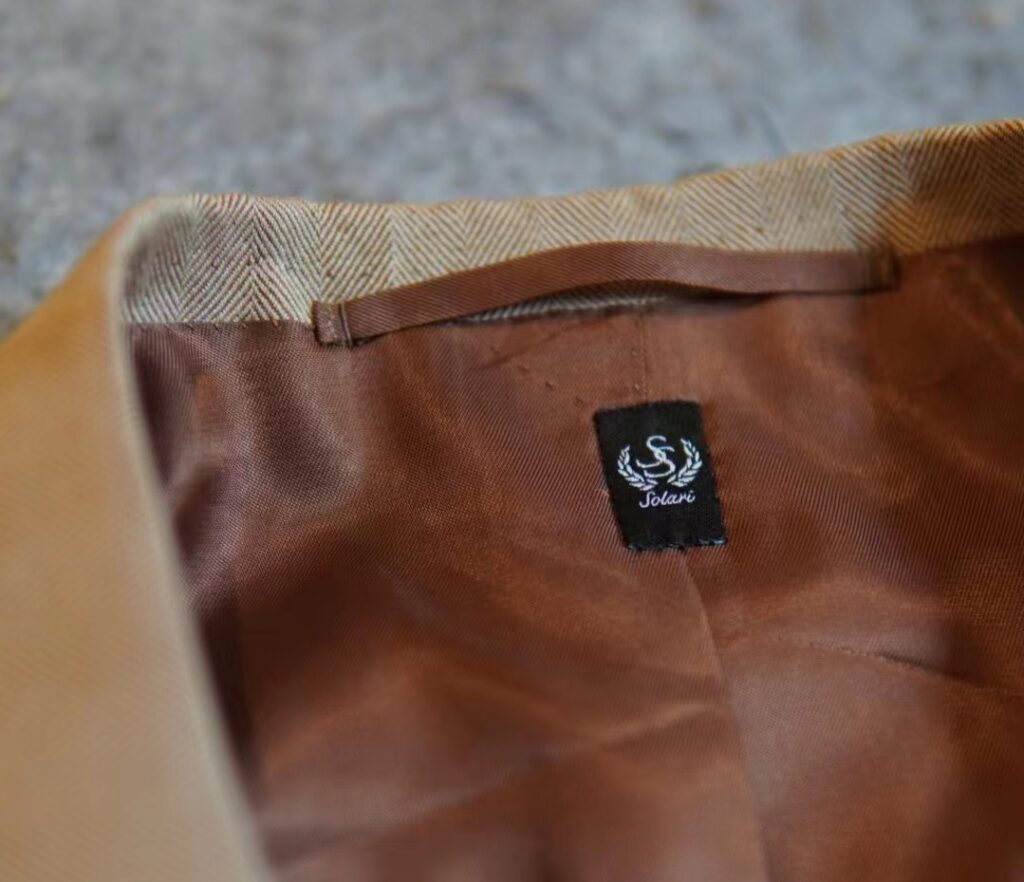
Many people may only pay attention to one of the founders, Riccardo who worked in Yuki Inueno, a famous Milanese house in Italy, but Solari was actually founded by three young tailors. ZHAO Hui is one of the founders, English name Vincent.
Let’s find out his story.
Briefly introduce yourself.
My name is ZJAO Hui, born in 1990s, from Wuhan.
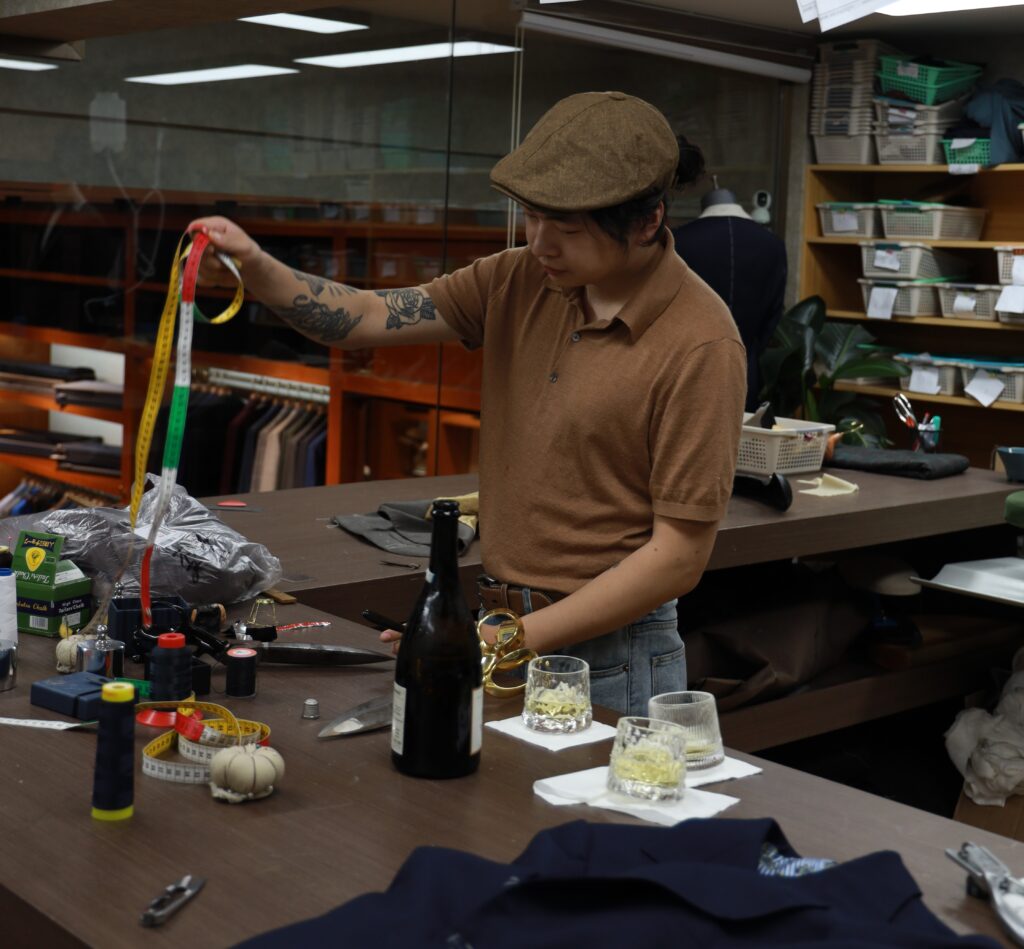
I like to do handmade things, like cooking, and I prefer things that are created from scratch and have a sense of creativity.
How did you get into the industry?
I originally practiced French bakery and returned to Wuhan from Dubai in 2008. Wenchuan had a heartbreaking earthquake that year. Although Wuhan was far away, but there was a rough sense of earthquake. I saw the crumbling glass in the cupboard and suddenly felt that life is impermanent, why not do what interests me?
What is your experience working in the industry?
I first entered this industry in Anhui province, and I stayed in the workshop to learn from teachers after doing my job. Fortunately, the master taught me. I guess I was lucky.
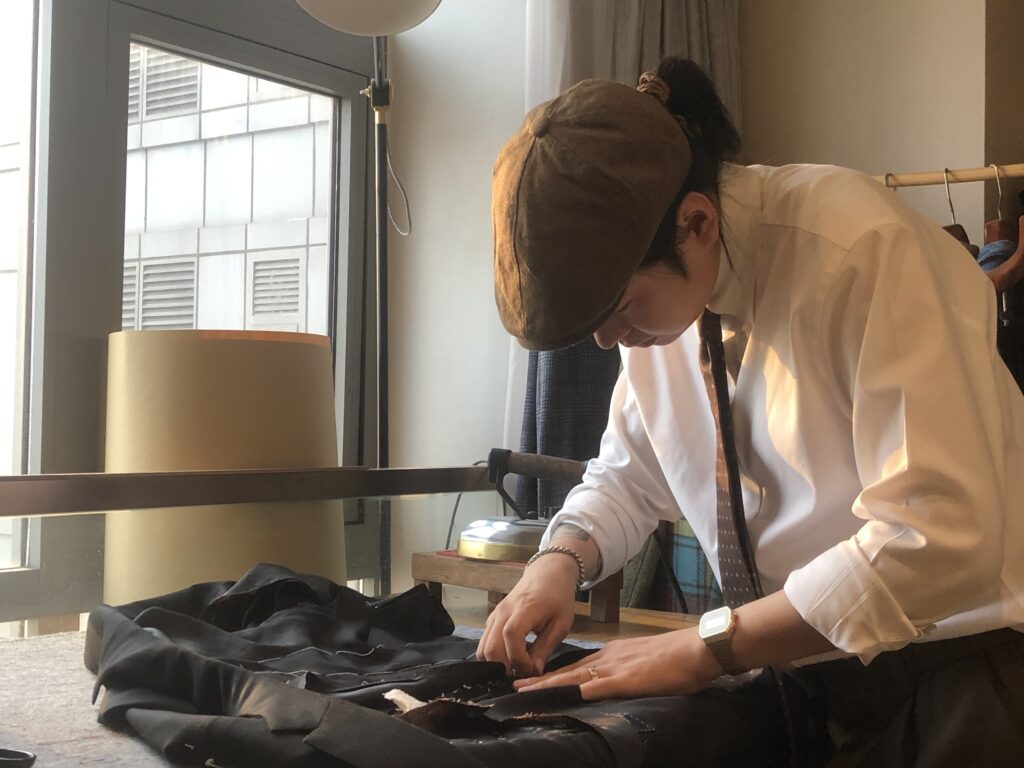
Later, I traveled to Jiangsu and Zhejiang, because I thought that it was the birthplace of domestic suit craftsmanship, and I wanted to learn and hone more.
Finally, I met Riccardo in Chengdu, when he had just returned to China after studying at Yuki. By chance he became a colleague in Chengdu Shige (A tailoring shop). Together, we took care of the production of clothes in the store. Thanks to the boss at the time, Mr. PINK, for giving us great support and trust, so that our ideas have room to play.
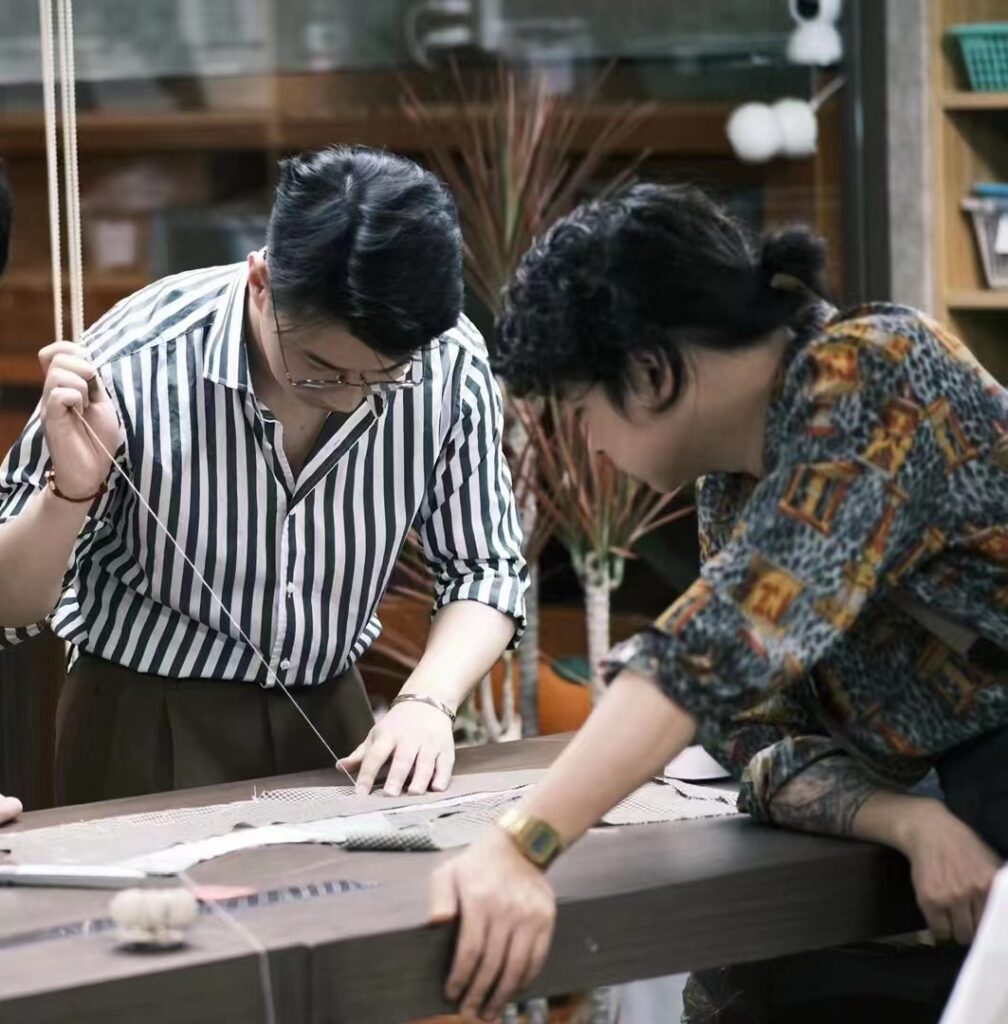
How has each experience improved you as a tailor?
I think that these experiences are stages for the improvement of my craft as a tailor, and they were breakthroughs after summarizing the problems encountered in each work.
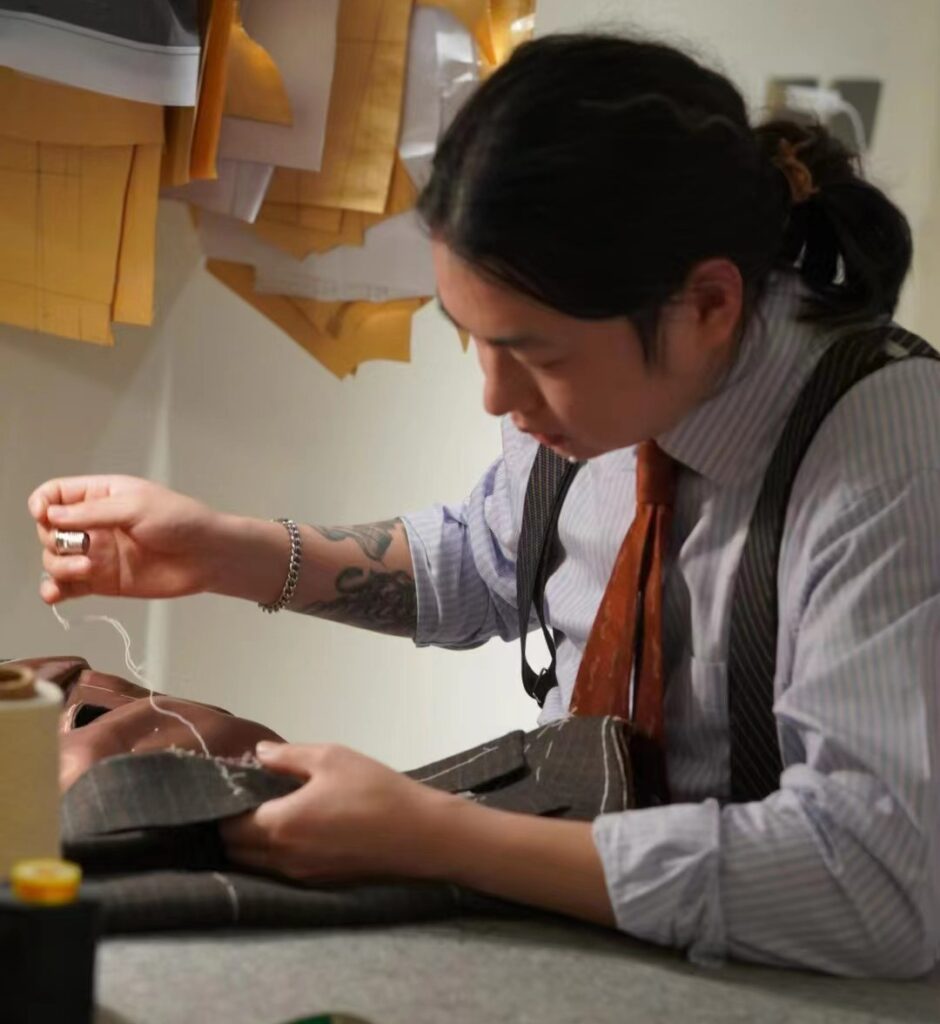
What led you to the creation of Sartoria Dei Solari?
Because of the aesthetics and passion for clothes, we decided to establish Sartoria Dei Solari.
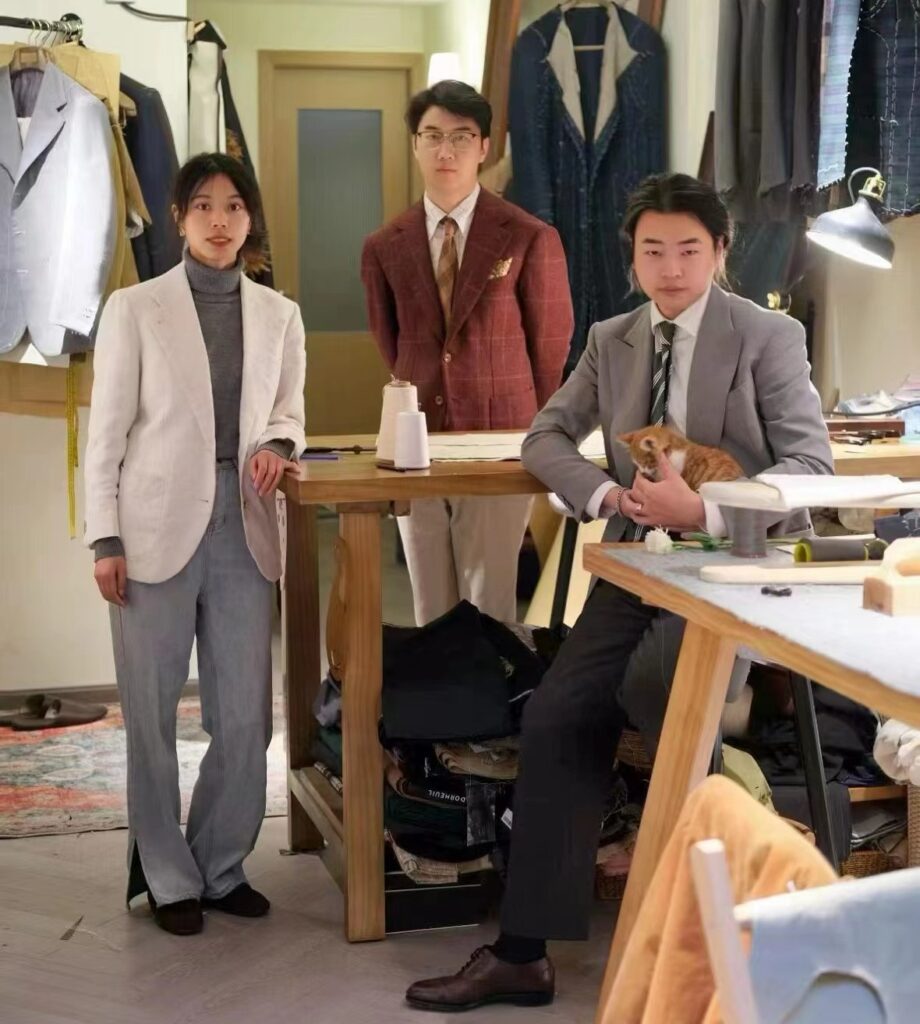
In your own eyes, what philosophy does Solari’s clothes convey?
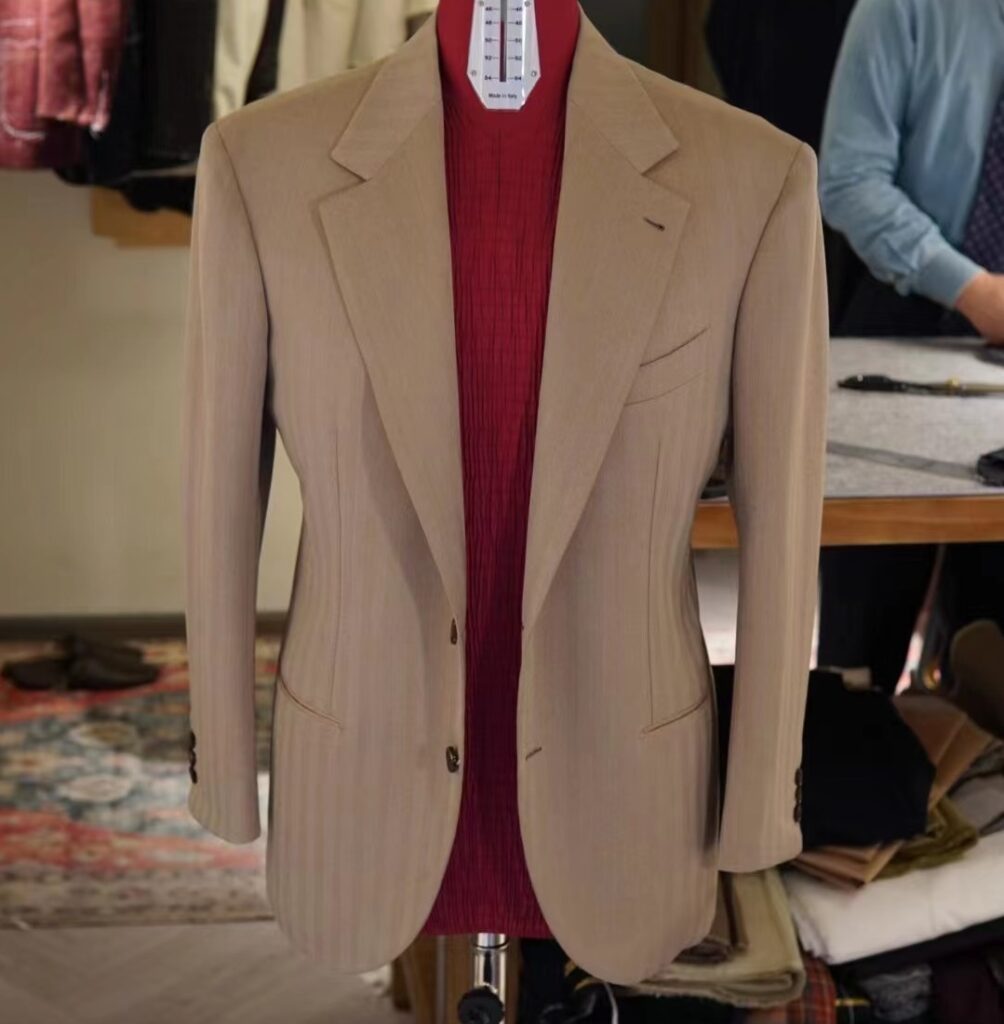
Our clothes are more about conveying our understanding of clothes, an attitude that can be elegant and appropriate on any occasion.
Can you tell us about some of the unique details on Solari’s suits?
Solari’s jacket has more pronounced straight shoulders, extending to the end of the shoulder bone, and the sleeves will naturally hang down with the lightest structure, without rope.
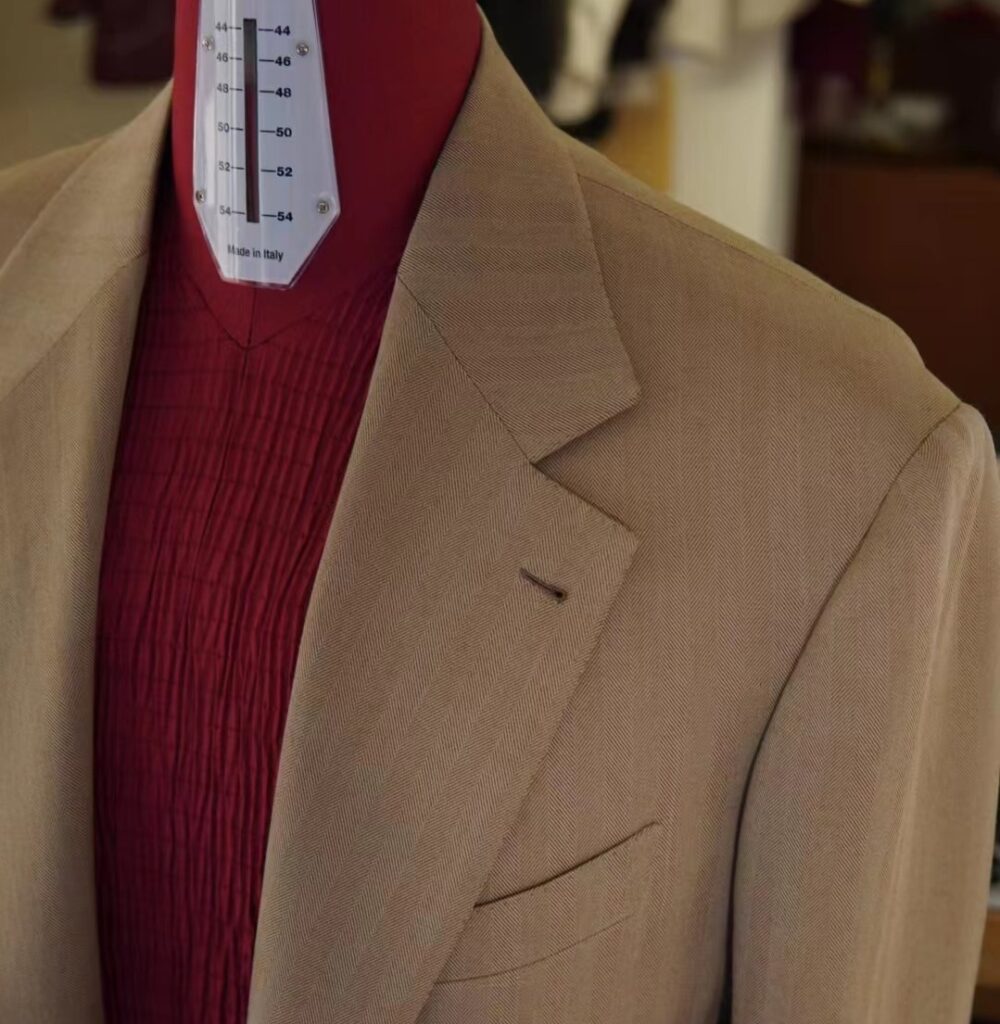
Weakening some of the structure, the serial port line slopes upwards at the intersection of the lapel and collar, pointing to the neck, and the lapel has a slightly raised lapel curvature, a shape we call the Risvolto curvo that enhances the sense of power throughout the garment.
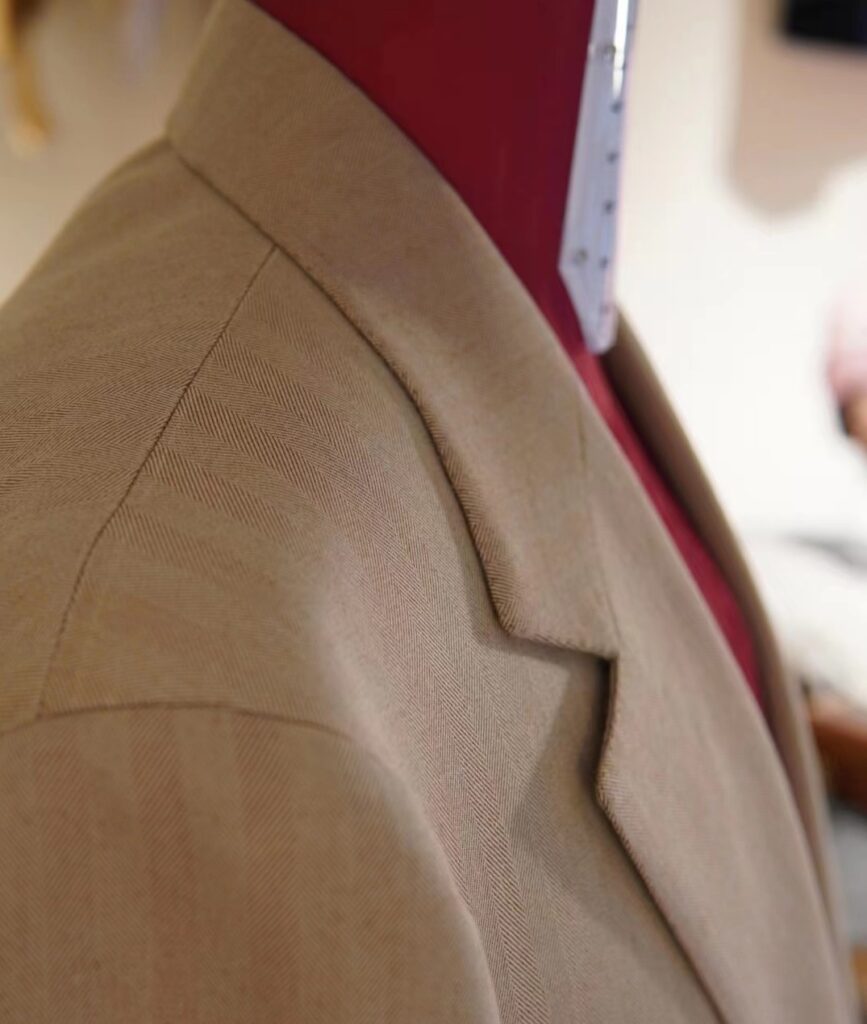
A full chest, and a relatively closed hem.
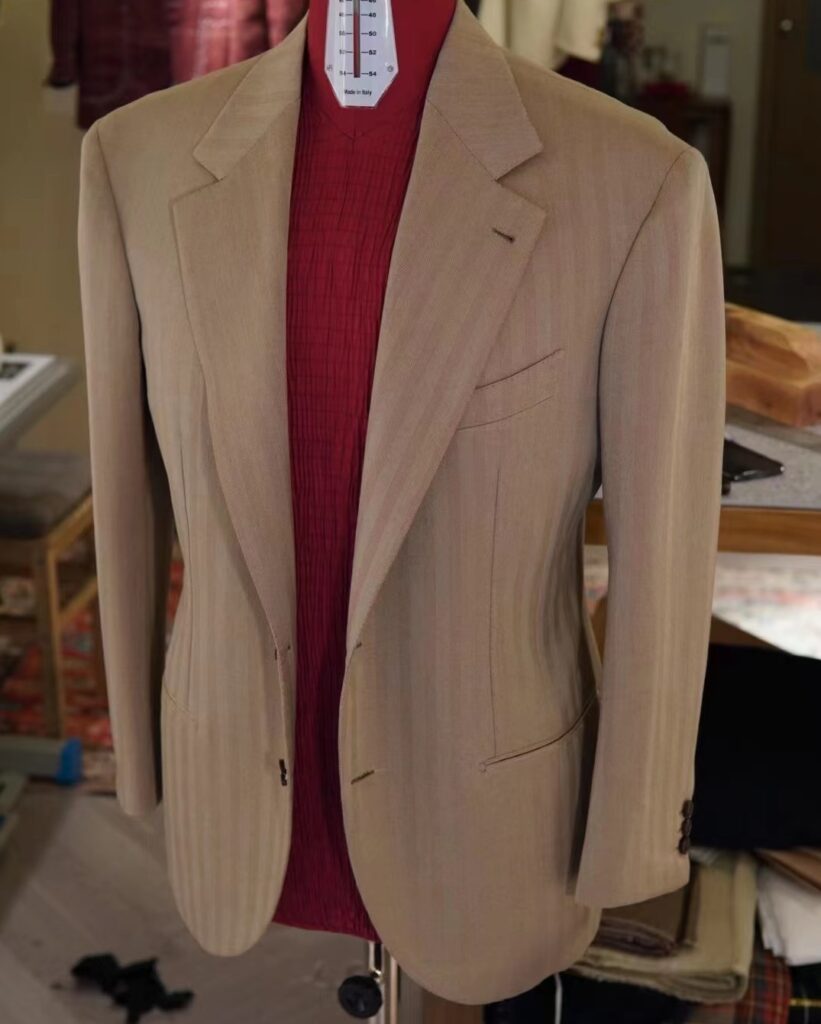
Solari also has a lot of unique things as a consumer experience, right?
When it comes to consumer experience, the first is our pricing system, our price consists of two parts: handmade fee + transparent fabric cost, and the fabric can be provided by the customer. If the material is selected, we will provide the exact unit price of the fabric.
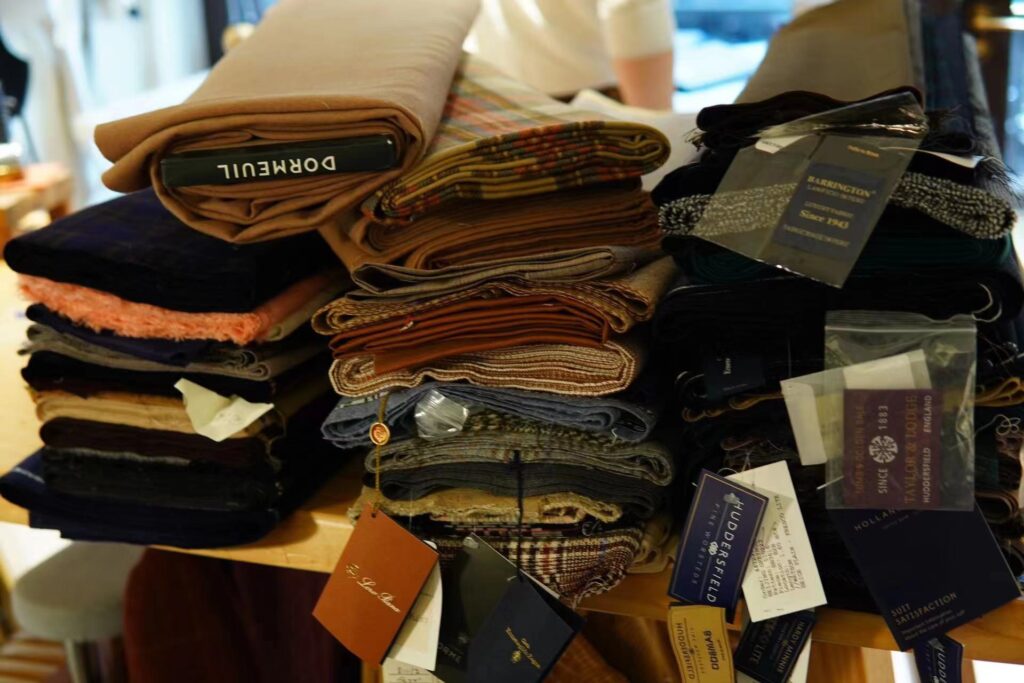
Secondly, we insist that we will modify clothes on site when customers have enough time, which is time-consuming, but we think it is necessary.
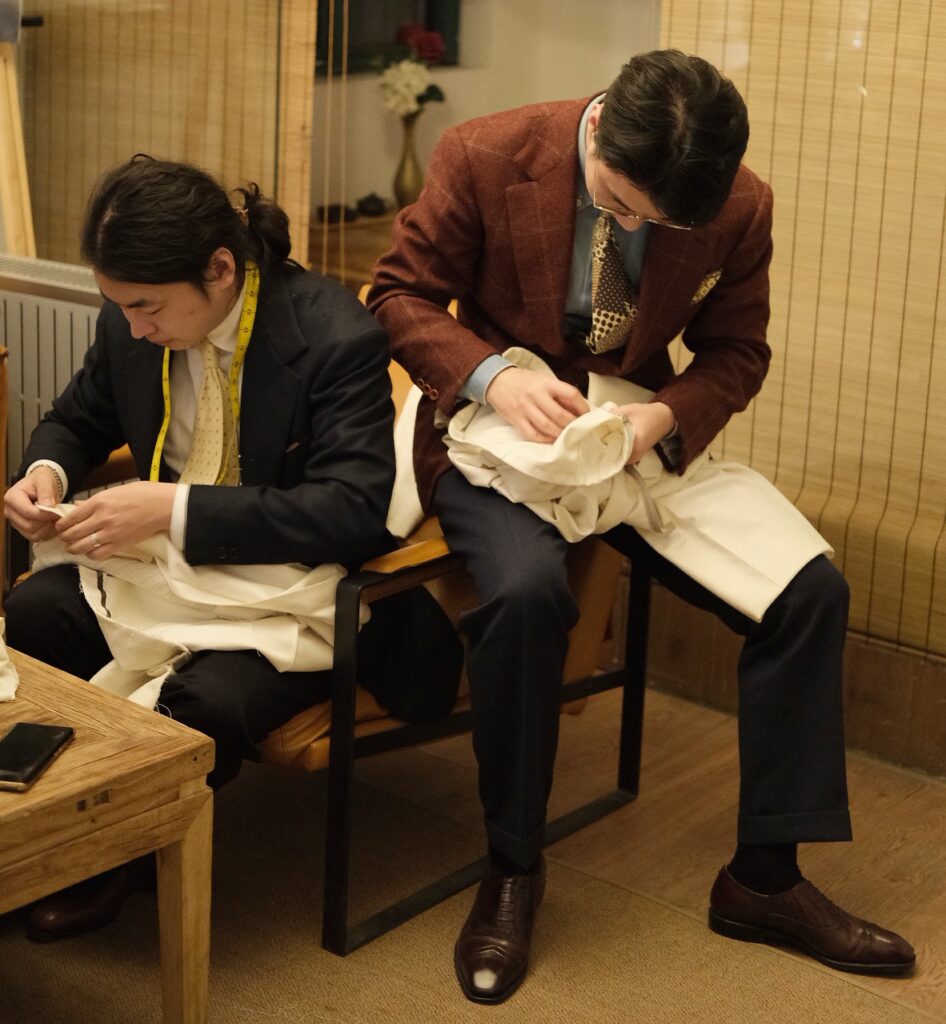
Every trunk show we bring needles and white cotton thread, if there is a collar size problem or balance and dimension problem when Fitting, it will be solved intuitively at that time.
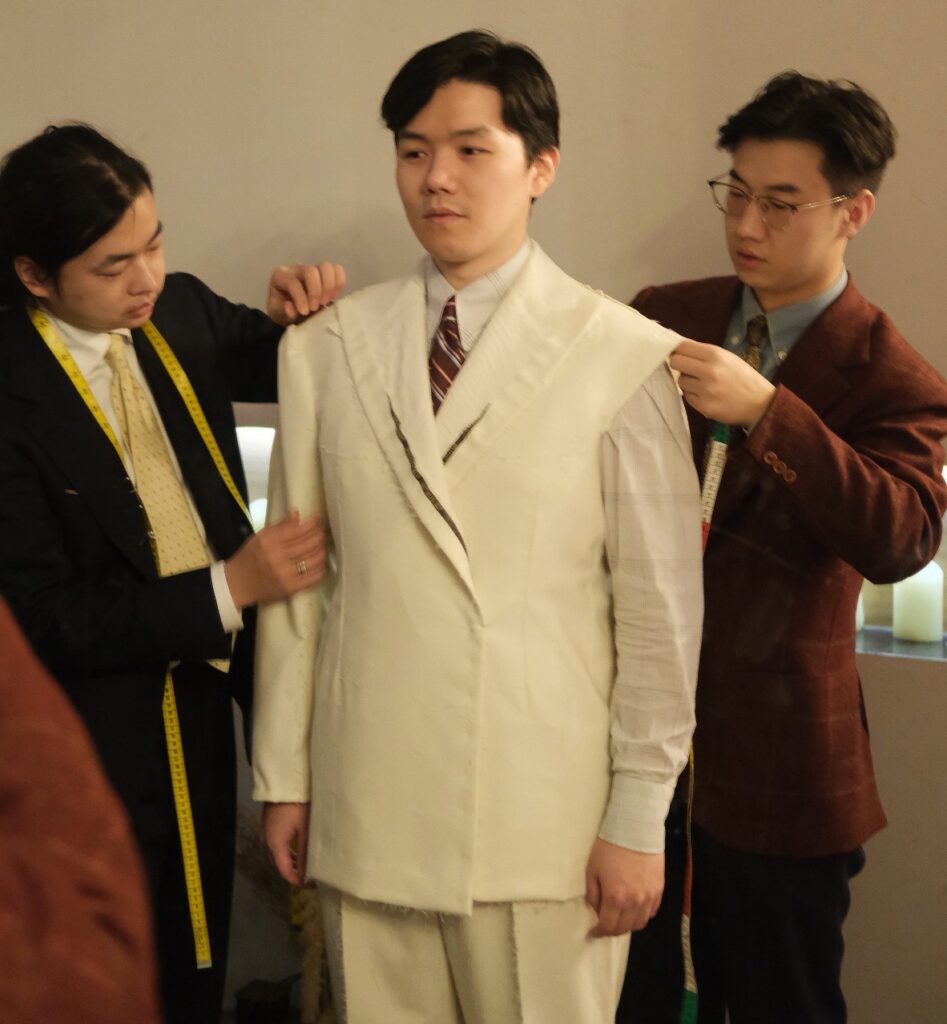
Fitting is a very critical process in the Italian system, even more important than pattern making, and solving it in person will minimize the possibility of mistakes, as well as some problems arising from communication, ensuring the accuracy of the finished product.
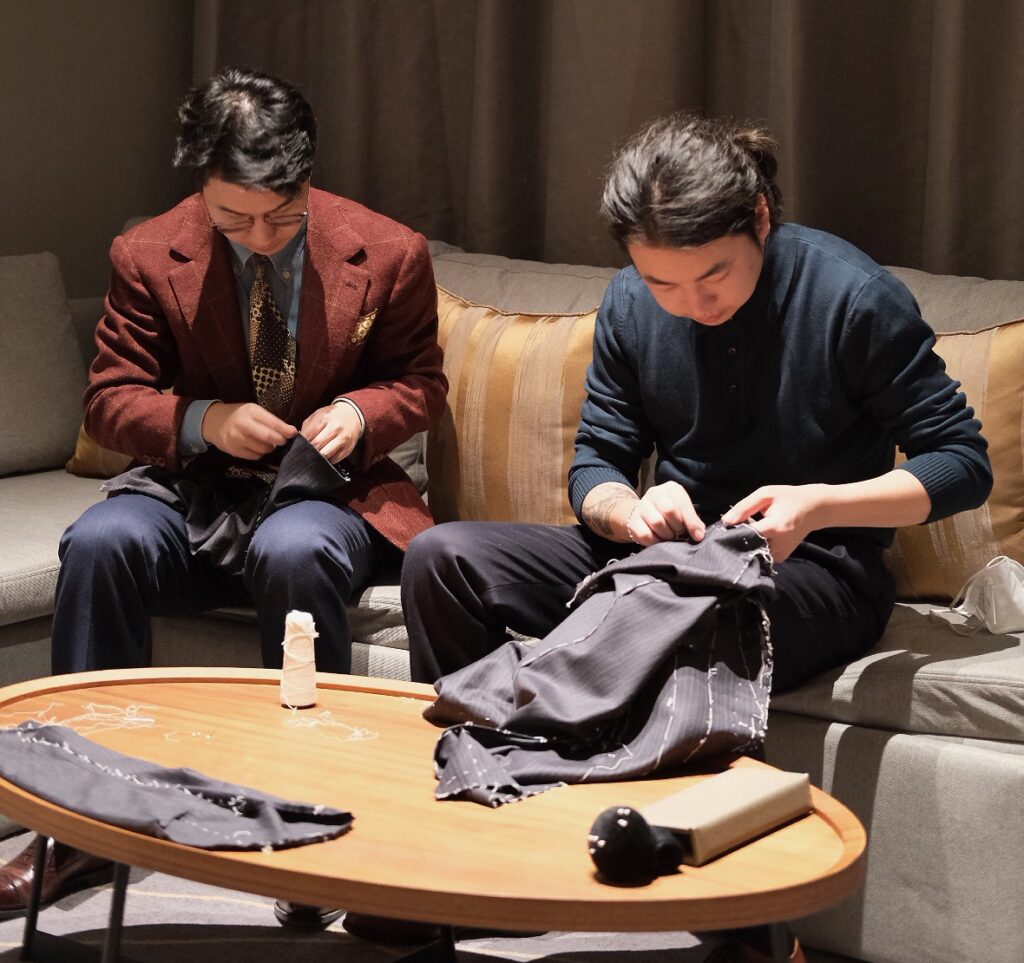
Do you think suits need to emphasize the style of different regions?
I don’t think there’s a need to emphasize the various regional styles. Because Milan is now what everyone is talking about; Florence; Naples, I think, is all a kind of labeling, so that it is easier to summarize and remember. But these cities all have different cultural climates, and even where the tailors come from is important.
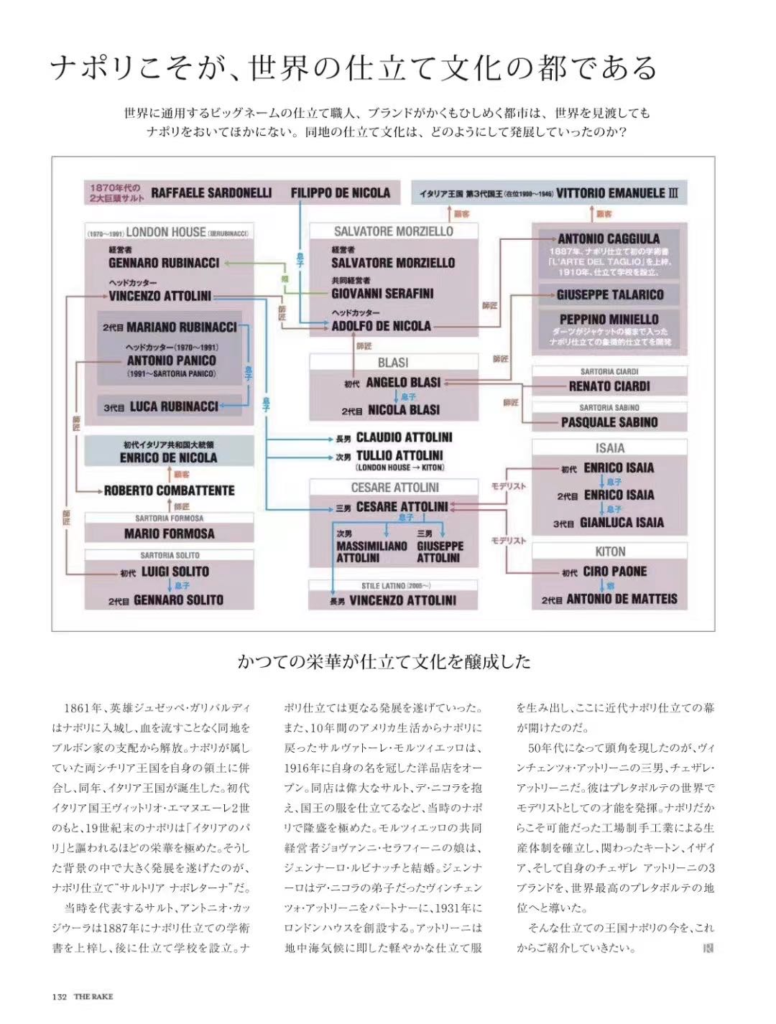
They will make their own style according to their own understanding. And I think that’s where the brilliance of the Italian genre comes in. What each master inherits is only craftsmanship, and a set of standards on how to make clothes better, and then change and improve.
We are constantly imitating, catching up with famous tailors, what do you think, we can say that we are on the same level as others?
First of all, I think that there is a big gap between China and Italy and even with Japan and South Korea, and these gaps are not enough to be made up by a few masters or even dozens of masters going out to study, but by the entire industrial system.
Firstly, the price difference between fabrics and accessories is very large, even several times, and secondly, Milan and Rome have special tailoring schools. There is a perfect system from pattern making to craftsmanship, and masters like LIVERANO will be invited to teach on site. So we lack a special tailoring school, which makes the inheritance itself very difficult, and the price on the supply side is too high, and the craftsman is only working for fabric and accessories manufacturers. However, the domestic start is relatively late, the market is not yet mature, I believe there will always be the same level on the same day.
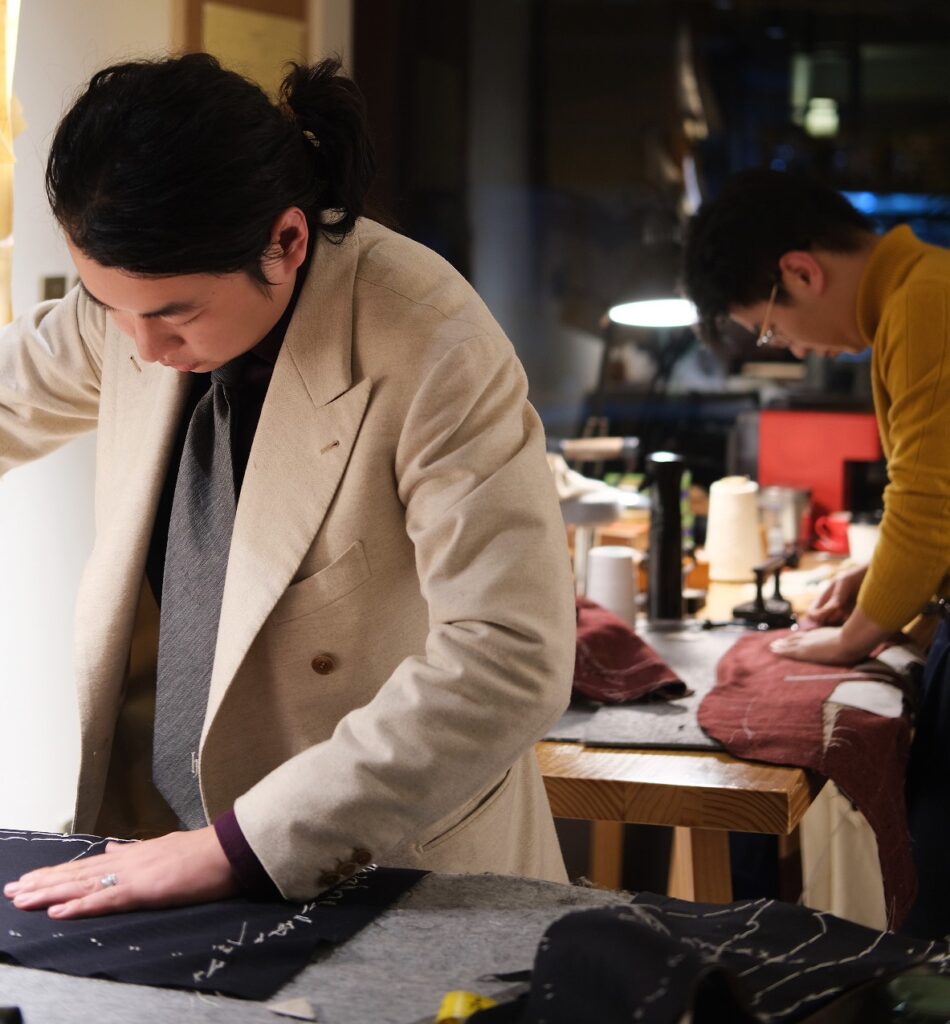
What are Sartoria Dei Solari’s plans for the short term?
We will continue to maintain the current state and finish each garment with a high standard of handwork.
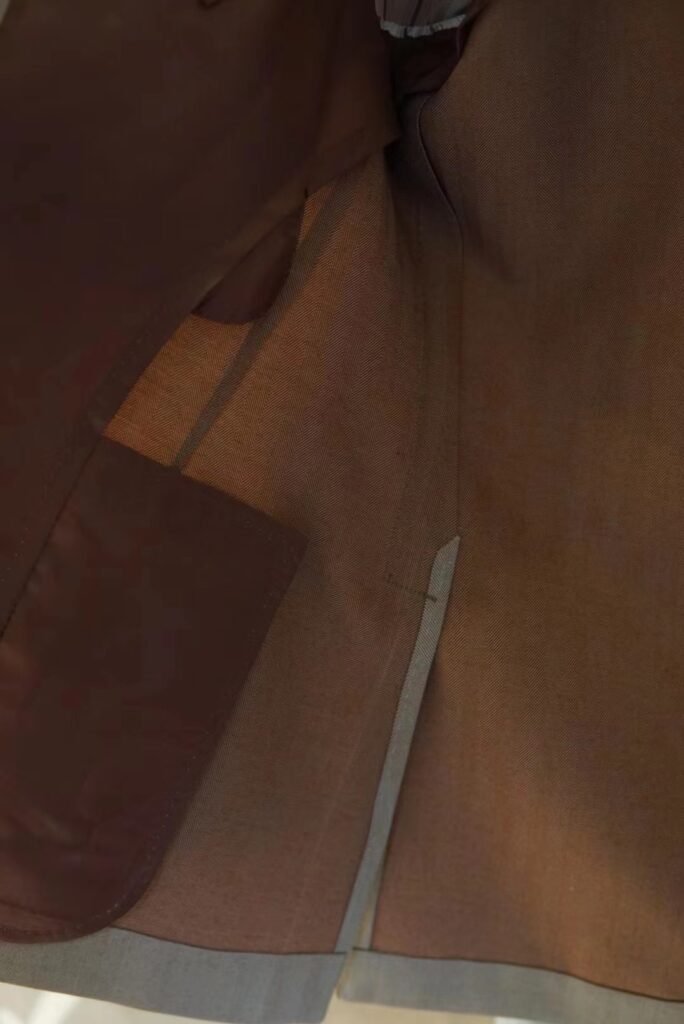
In 2023, we host trunk shows in Shenzhen, Guangzhou, Shanghai, and Suzhou, and we also have plans to show in Beijing.

